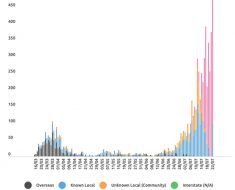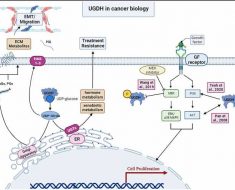Women going through IVF with frozen embryos are up to 74% more likely to be struck down with pre-eclampsia, study finds
- Frozen embryo pregnancies had 74% higher risk of hypertensive disorders
- IVF technique freezes fertilised eggs rather than transferring them in five days
- Norwegian researchers say clinics should give ‘careful consideration’ of risks
Women going through IVF with frozen embryos might be more prone to pregnancy complications, a study claimed today.
Norwegian academics found mothers-to-be relying on thawed embryos were 74 per cent more likely to be struck down with high blood pressure in pregnancy.
This was compared to women who became pregnant naturally, who carried the same lower risk as those using fresh embryos.
The study involved more than 4.5million pregnancies.
High blood pressure disorders in pregnant women include pre-eclampsia, a serious condition that can prove deadly to both babies and mothers.
Kim Kardashian and Beyonce both suffered from the condition, which is thought to affect around 5 per cent of pregnancies in Britain and the US.
Scientists at the Norwegian University of Science and Technology called on fertility clinics to make ‘careful consideration’ of the potential risks before freezing embryos as a standard procedure.

Mothers who conceive using frozen embryos in IVF are more at risk of high blood pressure problems during pregnancy, a study claims
IVF involves fertilising eggs outside the womb and then transferring them back to the uterus.
An embryo, an egg fertilised by a sperm in a petri dish, is transferred to the womb two to five days in fresh embryo transfer.
But for thousands of women, good quality embryos are left over.
These can be frozen and then thawed for use in the future.
Freezing is becoming more common because of the improved technology and cryopreservation methods that started in the late 2000s.
But frozen embryo transfer is known to come with a higher risk of hypertensive disorders in pregnancy than both natural conception and fresh embryo transfer.
Prior to this study, it was not known whether this was due to the freezing process or a risk factor from the parents.
The study, published in the journal Hypertension, assessed more than 4.5million births.
The majority of IVF clinics in the UK and the US rely on the fresh embryo technique, when eggs are taken, fertilised soon after and then implanted.
Figures suggest around one in five cycles of IVF use the frozen technique — when ‘spare’ embryos from a previous attempt are kept frozen.
Previous studies have shown hypertensive disorders are more common after frozen embryo transfers.
Yet experts still have no idea why.
This is the first paper to indicate that the greater risk is caused by something in the freezing process itself, rather than risk factors from the parents.
To tease out whether it was the parents themselves or the IVF process to blame, the researchers also looked at 33,000 women who had given birth from natural conception and frozen embryo IVF.
Results showed there was still a clear elevated risk.
However, they are still clueless as to what exact part of the freezing process is to blame, arguing that further studies are needed.
Mothers involved in the study came from Denmark, Norway and Sweden, and were aged 22 to 46.
The majority of the 4.5million pregnancies were naturally conceived, with 78,300 being fresh embryo transfers and around 18,000 frozen.
Results showed 7.4 per cent of women who used frozen embryos had hypertensive disorders.
For comparison, the rate was 4.3 per cent with natural conception.
Lead author Dr Sindre Petersen insisted that most IVF pregnancies are ‘healthy and uncomplicated’.
However, he added: ‘This analysis found the risk of high blood pressure in pregnancy was substantially higher after frozen embryo transfer compared to pregnancies from fresh embryo transfer or natural conception.
‘Our results highlight that careful consideration of all benefits and potential risks is needed before freezing all embryos as a routine in clinical practice.
‘A comprehensive, individualised conversation between physicians and patients about the benefits and risks of a fresh versus frozen embryo transfer is key.’
Pregnancy adds extra strain to a woman’s heart and blood vessels, making high blood pressure disorders such as pre-eclampsia more likely.
Source: Read Full Article





